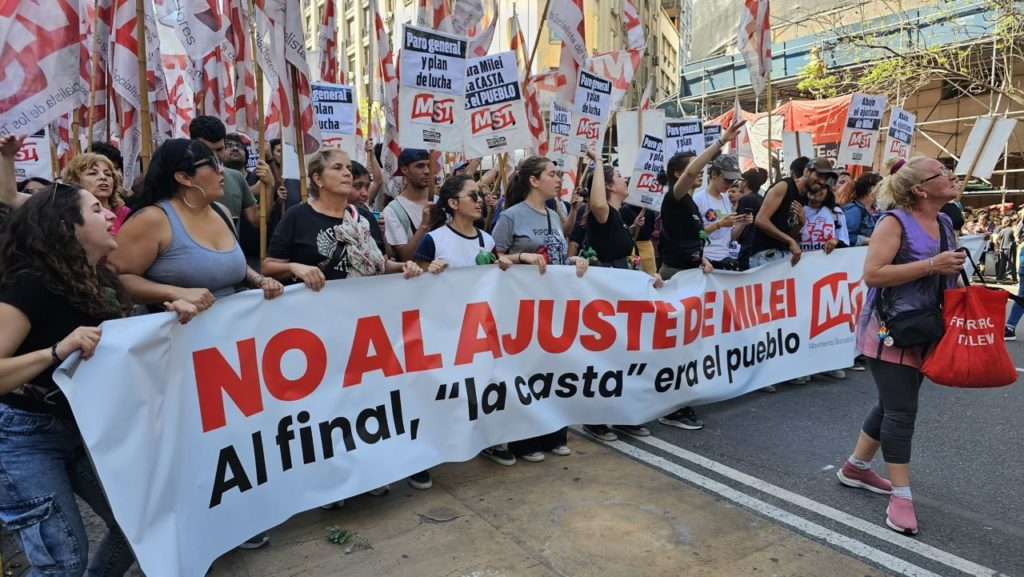Thousands of Argentines demonstrated, this Wednesday December 20, “against the economic austerity measures” implemented by Javier Milei’s government. The day was marked by high tension early on, following a major police operation carried out at the main entrances to the city of Buenos Aires.
The Minister of Security, Patricia Bullrich, announced that she would debut her “anti-picketing protocol”, presented last Friday December 15, and threatened that they would not allow the demonstration to take place. However, the call to mobilization managed to overcome the fear that the government tried to install.
The peaceful mobilization was organized by left-wing social movements and political organizations, though social movements and parties linked to Peronism did not participate. The major slogans of the mobilization were in rejection of economic adjustment and austerity, the agreement with the IMF, and the new restrictions on the right to protest.
In addition to marking 10 days since the start of Milei’s right-wing government, December 20 is a key date of mobilization for social movements and left parties of Argentina as it marks the start of the December 2001 uprising which forced the then president Fernando de la Rúa to resign. The mobilizations in December 2001 took place after De la Rúa declared a state of siege and carried out a fierce repression that left 39 protesters dead, in a context of deep economic crisis.
The official document of the mobilization, read in Plaza de Mayo, denounced that Milei’s economic plan intends to “fill the coffers of the IMF, the creditors of the fraudulent external debt and the most concentrated sectors of the capitalist class.” Adding that the plan to enrich concentrated economic sectors is being carried out “while people are being told that ‘there is no money’.”
Furthermore, the document denounced that “Milei, together with Patricia Bullrich, is launching an illegal protocol to prohibit popular mobilizations and social protests. This is an attempt to attack an elementary democratic right that was restricted by the genocidal military dictatorship 40 years ago, an illegitimate, illegal and undemocratic initiative. They know that the Argentine people will not stand idly by in the face of this brutal adjustment and the attacks on our rights. That is why they want to prohibit them. We say no to the protocol, no to repression and no to the criminalization of protests. Unrestricted defense of the right to protest and popular mobilization, the right to strike and take to the streets against this reactionary [set of laws].”
Police tried several times to prevent protesters from reaching Plaza de Mayo. At the end of the mobilization, social organizations reported that the police arrested three protesters.
While the event was taking place, the president of Argentina, Javier Milei, went to the headquarters of the Argentine Federal Police along with several of his ministers. Images were released of the president live-monitoring the protest at the station.
This piece was first published in Portuguese at Brasil de Fato.





